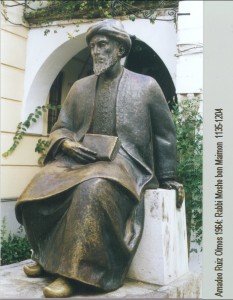Abd al-Karim al-Jabari sat yesterday in one of the overstuffed couches that line the sides of his living room in Hebron. He has a square face and a graying mustache, and he spoke quietly, with a hint of a smile, as if apologizing for telling guests his troubles. On the cofee table were bowls of nuts and tiny cups of spiced coffee and plates of baked holiday treats whose names I don’t know.
Jabari’s house is near Kiryat Arba, the settlement that looks down on Hebron, physically and in spirit. He’s put up a wall around his house, with barbed wire at the top. It doesn’t help a lot. Between his house and the gate to Kiryat Arba is the so-called synagogue of Hazon David, a makeshift structure, more tent than building. Hazon David is an illegal outpost, which is to say illegal even in the eyes of the Israeli government. The house of prayer was built to seize land, to extend settlements more quickly and aggressively than the government would. It’s the rare outpost that has been taken down by the army and police – 32 times, I’m told. And put back up 32 times. And still there.
“Someone who’s religious, he brings his children to the syngagoue ,” said Abd al-Karim. He corrected himself, perhaps out of respect for those of his guests wearing kipot. “It’s not a synagogue. They say it’s a synagogue… He prays inside, and he tells his children to go throw stones.”






